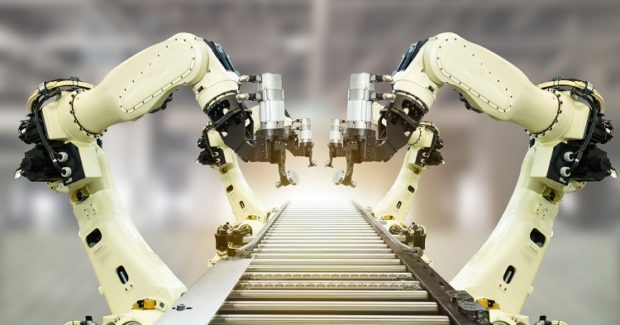Artificial Intelligence: The Next Generation of Communication
Manufacturing generates an unprecedented amount of data, creating an urgent need for shops to augment human analysis with AI that can unlock its value, learn from the historical knowledge embedded in their organizations, and help them remain competitive in the future.
Posted: June 10, 2019
Manufacturing is complex and hard to control, and existing technologies often fail at preempting production glitches, unable to spot the changing conditions that can impact quality. Each process step can have hundreds of variables that affect the quality of the output and operational effectiveness. Within the process control environment, a huge amount of data is coming off the line – far too much for any one person to analyze . . . so much that even skilled experts lose control of their process. In fact, there is a real danger that operators are being blinded by a blizzard of information and are missing real opportunities for process and quality improvement. Manufacturers must recognize that there is a large amount of value in their data and it does not require a large capital investment to begin extracting it. With traditional statistical process control software, control limits are programmed by human experts and often fail to capture the complex interactions between all process variables. As a result, there is significant variability in plant performance and production quality that human experts cannot explain.
As artificial intelligence (AI) applications enter the manufacturing sector, this unprecedented amount of data coming off the production line creates an urgent need to augment human analysis with AI – separating the data that can provide real value by using AI to find complex patterns in datasets and develop distinct operating paradigms for the production facility. Crucially, modern AI systems can be seamlessly deployed on top of manufacturing environments and used to reduce the cost of non-quality in manufacturing by generating control plans that bring production into a stable and optimized state – developing a path from the current plant state to the optimal state. All of this is possible by using cutting-edge machine learning techniques that allow the AI system to understand the effect that a small change in an arbitrary process step will have on all downstream process steps. Process steps are no longer operated and controlled in isolation, and for each prescribed change, the AI system can quantify the expected magnitude of its effect on production.
For example, AI is already delivering real ROI for heavy manufacturers. We are seeing incredible results, such as a large foundry that has reduced internal and external scrap by more than $1 million annually and an automotive body shop that reduced stud and spot-welding faults by more than 50 percent. Production facilities must learn from historical manufacturing data and not just assume that historical data has no value. We need to learn from historical data, from PLCs and even old logbooks, to exploit the collective knowledge and experience of all those who have influenced the plant in the past. We need to institutionalize those years of operational experience for the benefit of each manufacturer’s current and future workforce – and not lose them.
This is an excerpt from a presentation by Frans Cronje at the American Manufacturing Summit in Chicago, IL, in March 2019.
















